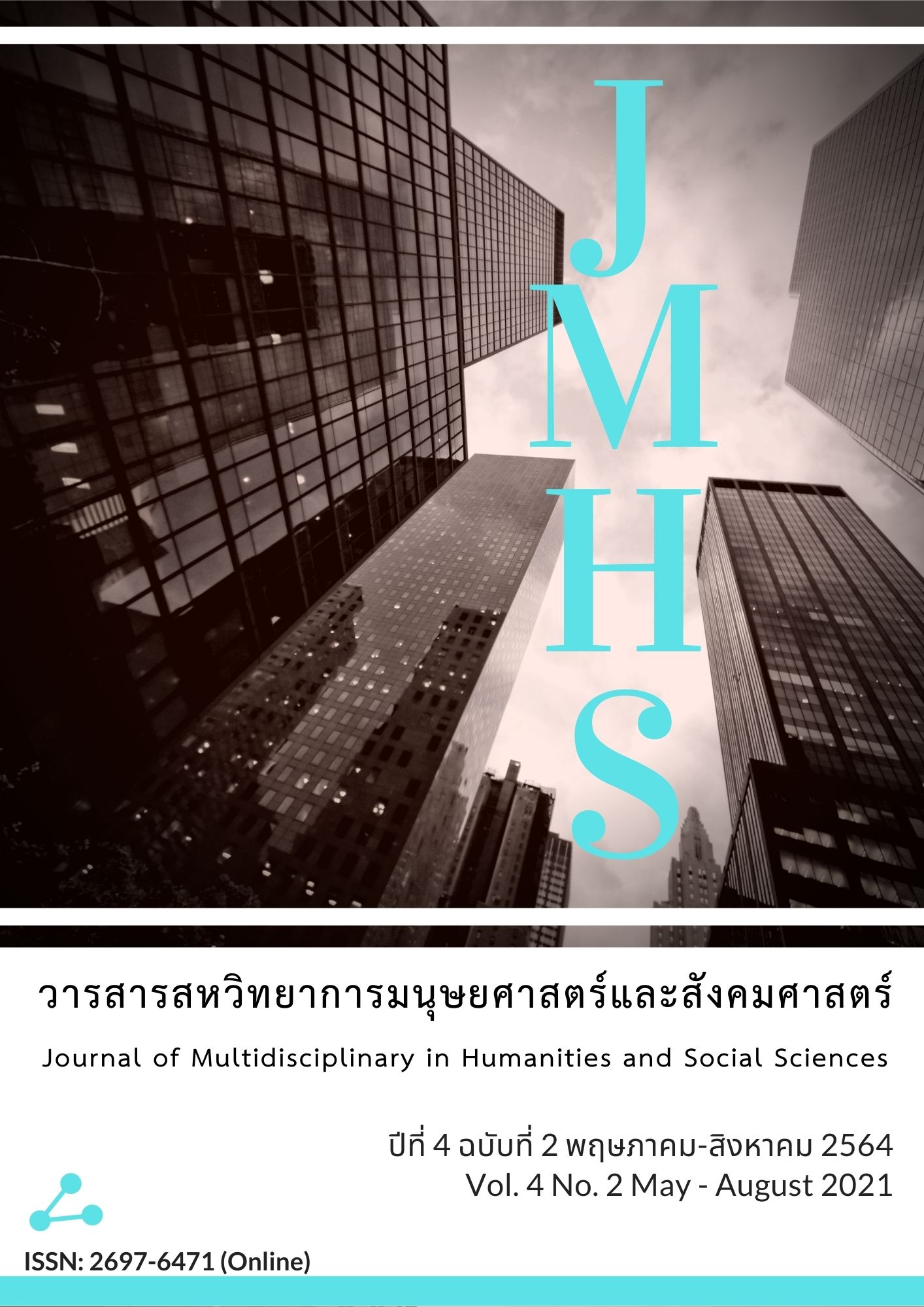A Study of Destination Image Factors and Destination Choices the Foreign Gay Tourists’ Loyalty to Tourism Destination in Thailand
Main Article Content
Abstract
The purposes of this research were to study the tourism destinations and destination choices that loyalty to tourist destinations. The research model, along with quantitative research, was employed. Data were collected from tourism of foreign gay tourists. Quantitative data were from questionnaires distributed to 400 participants. The tourist attractions recommended by Tourism Authority of Thailand include Bangkok, Phuket, Pattaya, Koh Samui, Chiang Mai, and Krabi. The data were analyzed by using descriptive data analysis.
The results showed that cognitive image overall was at a high level (M=3.72, SD=0.136) and affective image (M=2.53, SD=0.044). Affective Image overall was at a small level (M=2.53, SD=0.044). Destination Choices overall were at a high level (M=3.64, SD=0.142). Destination loyalty overall was at a highest level (M=4.24, SD=0.010).
Article Details
Views and opinions appearing in the Journal it is the responsibility of the author of the article, and does not constitute the view and responsibility of the editorial team.
References
กรมการท่องเที่ยว. (2560). แผนพัฒนาการท่องเที่ยวแห่งชาติ 2560-2564. สืบค้นเมื่อ 10 กันยายน 2560, จาก http://www.dot.go.th
การท่องเที่ยวแห่งประเทศไทย. (2560). LGBT Tourism: Thailand as a vagaytion. TAT Review. สืบค้นเมื่อ 15 ตุลาคม 2560, จาก https://www.tatreviewmagazine.com/article/vagaytion/.
เลิศพร ภาระสกุล. (2559). พฤติกรรมนักท่องเที่ยว. (พิมพ์ครั้งที่ 3). กรุงเทพฯ: จุฬาลงกรณ์มหาวิทยาลัย
อัครพงศ์ อั้นทอง และ มิ่งสรรพ์ ขาวสอาด. (2553). ภาพลักษณ์และพฤติกรรมนักท่องเที่ยวต่างชาติภายใต้สถานการณ์ วิกฤตการเมืองไทย. Thammasat Economic Journal, 28(3), 55-98.
Baloglu S., & McCleary, K. W. (1999). A Model of Destination Image Formation. Annals of Tourism Research, 26(4), 868-897.
Chaudhuri, A., & Holbrook, M. B. (2001). The Chain of Effects from Brand Trust and Brand Affect To Brand Performance: The Role of Brand Loyalty. Journal of Marketing, 65(2), 81-93.
Cochran, W. G. (1977). Sampling Techniques. (3rd ed.). New York: John Wiley and Sons.
Crompton, J. L. (1979). Motivations for Pleasure Vacations. Annals of Tourism Research, 6(4), 408-424.
Echtner, C. M., & Ritchie, J. R. B. (2003). The Meaning and Measurement of Destination Image. The Journal of Tourism Studies, 14(1), 37-48.
Fielding, N. G., & Lee, R. M. (1998). Computer analysis and qualitative research. London: Sage.
Gensch, D. H. (1978). Image Measurement Segmentation. Journal of Marketing Research, 15(3), 384–394.
Jacobsen, J. K. S., & Munar, A. M. (2012). Tourist Information Search and Destination Choice in a Digital Age. Tourism Management Perspectives, 1(1), 39-47.
Kotler, P. (1994). Marketing Management: Analysis, Planning, Implementation and control. (8th ed.). New Jersey: Prentice Hall.
Lapage W. F., & Cormier P. L. (1977). Images of Camping-Barriers to Participation?. Journal of Travel Research, 15(4), 21-25.
LGBT Capital. (2015). LGBT MARKET STATISTICS. สืบค้นเมื่อ 15 ตุลาคม 2561, จาก http://www.lgbt-capital.com
Likert, R. (1961). New Patterns of Management. New York, NY.: McGraw-Hill.
Mak, A. H. N. (2017). Online Destination Image: Comparing National Tourism Organisation's and Tourists' Perspectives. Tourism Management, 60(C), 280-297.
Muller, T. E. (1991). Using Personal Values to Define Segments is An International Tourism Market. International Marketing Review, 8(1), 57-70.
Oliver, R. L. (1997). Satisfaction: A Behavioral Perspective on the Consumer. New York, NY.: McGraw-Hill.
Pelasol, J. (2012). Igcabugao: A Potential Tourist Destination in the Southern Part of Iloilo, Philippines. International Peer Reviewed Journal JPAIR Multidisciplinry Research is Being certified for QMS ISO 9001:2008 by the Anglo Japanese American Registrars of the United Kingdom.
Schmöll, G. A. (1977). Tourism promotion. London: Tourism International Press.
Shih, D. (1986). VALS as a tool of tourism market research: the Pennsylvania experience. Journal of Travel Research, 24(4), 2-10.
UNDP, USAID. (2014). Being LGBT in Asia: Thailand Country Report. สืบค้นเมื่อ 15 ตุลาคม 2561 จาก https://www.refworld.org/pdfid/54ed82784.pdf
World Tourism Organization (UNWTO). (2017). UNWTO Tourism Highlights 2017 Edition. Retrieved October 15, 2018, from https://www.e-unwto.org
Woodside, A. G., & Lysonski, S. (1989). A general model of traveler destination choice. Journal of Travel Research, 27(4), 8-14.
Yoon, Y., & Uysal, M. (2005). An Examination of the Effects of Motivation and Satisfaction on Destination Loyalty: A Structural Model. Tourism Management, 26(1), 45–56.


